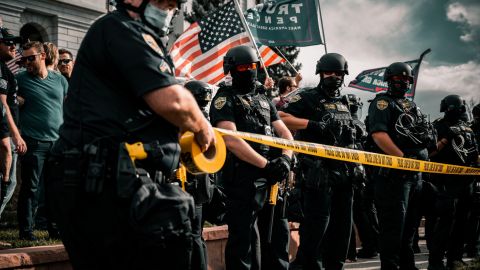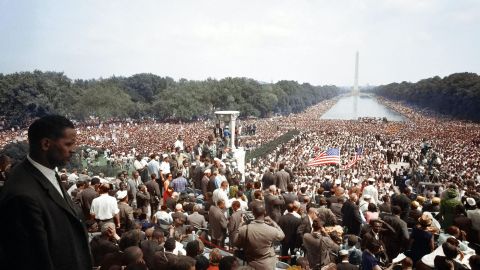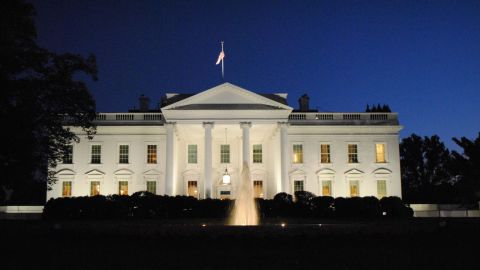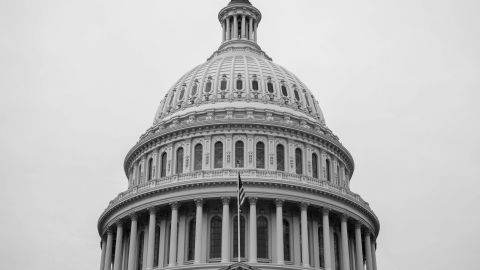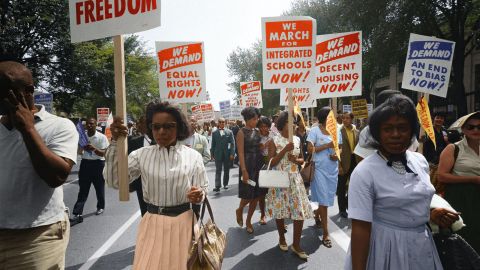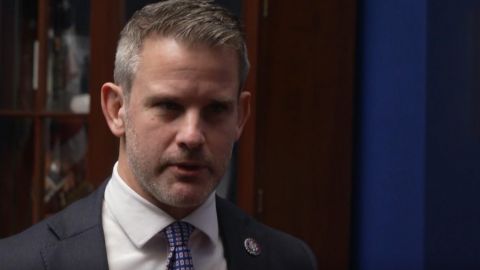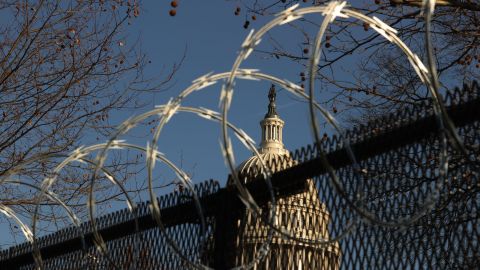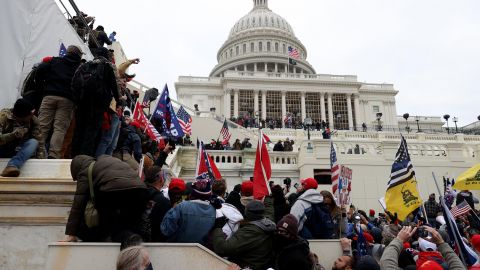President George Washington famously warned against forming political parties, cautioning the nation in his farewell speech as he left office. He predicted that they would sew divisions within America that foreign enemies could manipulate or take advantage of. Today, experts warn of the increasing danger of political parties not immediately accepting election outcomes, from Al Gore vs. George W. Bush in 2004 to Joe Biden vs. Donald Trump in 2020.
- Political parties are the gatekeepers.
And in many ways,
I think Americans actually invented political parties.
But what the irony is that our constitution
was written before political parties existed.
So we have not as many kind of formal procedures in place
to assure their centrality and to assure
that they can serve this gatekeeping role.
- Very early on the north and the south
were clearly at odds in their interests.
As a result, political parties began to spring up
throughout the country, but two in particular,
Democratic Republicans and the Federalists.
Federalists were the party of Hamilton,
Democratic Republicans, the party of Thomas Jefferson
and James Madison.
George Washington is the only president
to have never declared allegiance
to a political party while he was in office.
His biggest issue was that the factionalism in America
was clearly driven by self-interest,
and that people and the head of political parties
and constituents were invested in their own interests
at the expense of others.
This was a problem because power
would then become the priority
instead of the betterment of the nation,
instead of improving the democracy,
working towards stability,
all of that would fall to the wayside
as long as a party could maintain power.
And if it was all about power,
then corruption and decay were close behind.
- George Washington in his 1796 farewell address
specifically said, "Don't build political parties."
He said, "Once we build parties that are against each other,
Americans will start fighting each other
and they will stop paying attention
to the threats from other countries.
And that will open us up to not only threats
from other countries, but also will allow other countries
to take advantage of these internal rifts that we have
and manipulate us and distract us from the project
of perfecting American democracy."
And that was his warning.
And then in the election of 1800, we had parties.
We made 'em pretty much right away.
- At every stage, the major political parties
in the United States had made claims about democracy
that were predicated on what the leadership
believed the nation needed.
And at each one of those moments,
whether it was in the 1800s or yesterday,
there was some flaw in that calculation.
No party can say that they have had a seamless
or perfect history of conceptualizing democracy.
And each party has a responsibility to reckon
with those failures in the past
and provide people with something better for the future.
And I don't think any of the political parties
have done that in a way that is convincing.
- We need to see the reforms of our political parties,
because right now, the way that our political parties
is structured is that they're also focusing on the extremes
and we're basically having people fighting things out
rather than looking at consensus.
All of our politics is described
in terms of win or lose, victory or defeat,
not about how we create coalitions,
both within parties and across parties to get things done
for the American people.
It's all about, how do I win?
Politics has become like mortal combats
and politicians are like avatars in a video game
where you just have to blow people away to win.
That's not how politic should be working
and it's not how politics
in the United States was envisioned.
It's just how it has become over time.
- I think there is a real danger
that losing candidates from either party
are going to stop treating their defeats as legitimate.
We have seen some of this in both parties,
we saw it spectacularly with President Trump
and the 2020 election,
and we have to rebuild a political norm
against this kind of sore loser political behavior.
It has to start with each party showing less tolerance
for its own members when they indulge
in this kind of irresponsible rhetoric.
We saw Democrats question the 2000 and 2004 elections
and launch objections to it on the floor of Congress
and they seemed harmless to a lot of Democrats at the time.
I would like to think that some of them
have reconsidered that after seeing what those kinds
of objections helped encourage after the 2020 election.
- We should not assume that democracy
just means two parties.
In fact, two parties often means a lack of imagination
and maybe lack of new ideas really.
In the late 19th century,
a period of great economic transformation
and also the economic depression of the 1870s, the 1890s,
you had parties pretty much forgotten today,
like the Greenback Party, the Populist Party,
other local labor parties in various cities,
which tried to really crack the hold of the two party system
on our political alignments.
It seems like we are stuck with these two parties right now
even though a lot of people find neither of them
all that appealing.
I wonder what would be the result for American democracy
if we really had a more multiple party system
as many countries do.
Some places works very well,
some places it doesn't work all that well.
But it helps to get new ideas into circulation.


